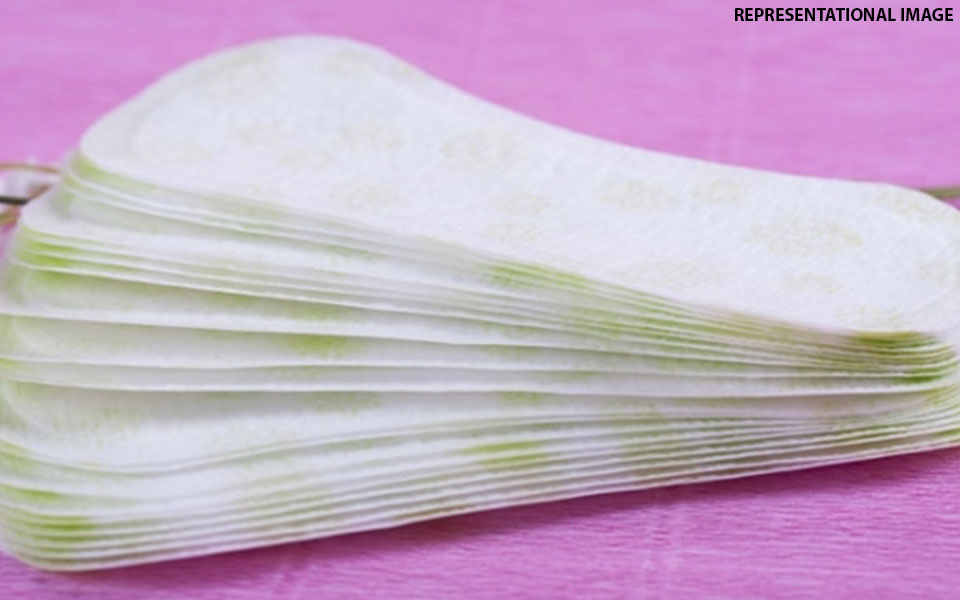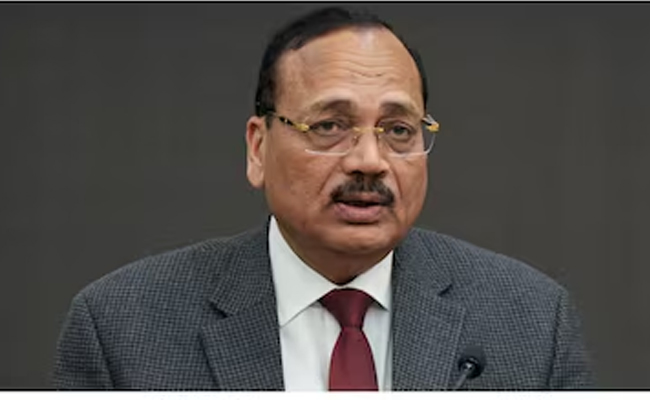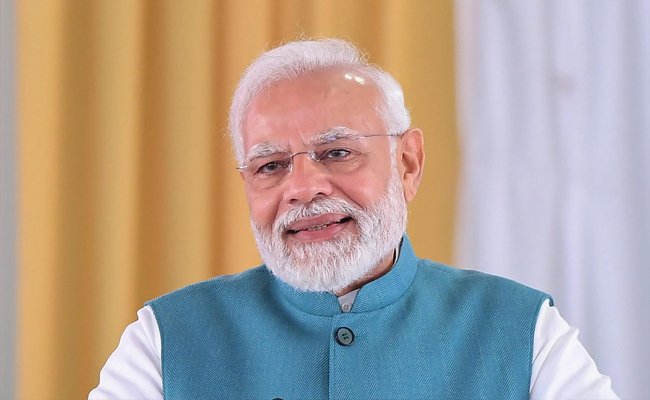Kolkata May 29: There is a need to break the culture of silence around menstruation as the start of the cycle actually empowers women as they know they now have the power to procreate, speakers said at a awareness campaign here on Monday.
The campaign 'Let us talk about Periods', organised by the UNICEF on the occasion of World Menstrual Hygiene Day, brought together bureaucrats, women's rights activists and experts in a bid to sensitize women as well as men about the natural process considered a taboo in our country.
"It is usually termed a women's issue and male members of the family, of the community, even male members of the administration. they usually don't talk about this subject. But until and unless it is on an even platform where both male and female members can talk openly on these issues probably the culture of silence will never be broken," said Dibyendu Sarkar, Additional Secretary, Department of Panchayat and rural development.
There is a culture of silence on this particular issue even among the women. People usually feel shy about the positive aspects of periods as well the complications arising out of periods. This results in different unhygienic practices, contaminations and infections.
"UNICEF recognises that menstrual hygiene is fundamental to the dignity and well-being of women and girls and an important part of the basic hygiene, sanitation, and reproductive health services to which every woman and girl has a right, said Chief of UNICEF Office for West Bengal Mohammad Mohiuddin,.
There are several myths in our society surrounding periods. It is a very common practice to link periods with being unwell, but it is a normal biological process.
"Menstruation is not a disease. Even I was told that if you have periods when you are in school and you are not prepared for it, tell your teacher that 'shorir-khaarap hoyeche'(I am unwell). But it is not, it is like any other day, except some women might feel uncomfortable," said Ananya Chakraborti, West Bengal Commission for protection of Child Rights.
According to her, menstruation empowers a woman.
"When we start to menstruate we are empowered. We know that we have the power in us to procreate, we are now women and we know our full worth and that is what needs to be celebrated," added Chakraborti.
Till date a woman cannot buy a packet of sanitary napkin from a chemist's shop comfortably or say has to speak a little low and the packet is wrapped with paper. If a girl says it out loud she will attract undue attention so mostly they prefer to wait.
"Why should I wait half an hour in the pharmacy making sure I don't unruffle the feathers of whoever comes in the pharmacy and make sure I get my privacy which is not even required. This is something that all girls go through most of their lives, said Choten Lama, IAS, Secretary Panchayat and Rural Development Department.
"The taboos on menstruation limits a nation as a whole, you are just pulling back an entire gender by saying that during these five days society stops you and approves of not contributing positively fully of what you can," she added.
The discussion on World Menstrual Hygiene Day witnessed many male participants. A young boy,Sobhan Mukherjee, Kolkata's very own 'Padman' was present. He has been installing indigenous sanitary pad-dispensing carton boxes in public toilets across the city to help the women during periods.
Let the Truth be known. If you read VB and like VB, please be a VB Supporter and Help us deliver the Truth to one and all.
Jaisalmer (PTI): Pushing for a "unified judicial policy", Chief Justice of India Surya Kant on Saturday said technology can help align standards and practices across courts, creating a "seamless experience" for citizens, regardless of their location.
He said high courts -- due to the federal structure -- have had their own practices and technological capacities, and "regional barriers" can be broken down with technology to create a more unified judicial ecosystem.
Delivering the keynote address at the West Zone Regional Conference in Jaisalmer, Kant proposed the idea of a "national judicial ecosystem" and called for an overhaul of India's judicial system with the integration of technology.
"Today, as technology reduces geographical barriers and enables convergence, it invites us to think of justice not as regional systems operating in parallel, but as one national ecosystem with shared standards, seamless interfaces, and coordinated goals," he said.
He emphasised how the role of technology in the judiciary has evolved over time.
"Technology is no longer merely an administrative convenience. It has evolved into a constitutional instrument that strengthens equality before the law, expands access to justice, and enhances institutional efficiency," he said, highlighting how digital tools can bridge gaps in the judicial system.
Kant pointed out that technology enables the judiciary to overcome the limitations of physical distance and bureaucratic hurdles.
"It allows the judiciary to transcend physical barriers and bureaucratic rigidities to deliver outcomes that are timely, transparent and principled," he said, adding that the effective use of technology can modernise the delivery of justice and make it more accessible to citizens across the country.
The CJI called for implementing a "unified judicial policy".
He said India's judicial system has long been shaped by its federal structure, and different high courts have their own practices and technological capacities.
"India's vast diversity has led to different high courts evolving their own practices, administrative priorities and technological capacities. This variation, though natural in a federal democracy, has resulted in uneven experiences for litigants across the country," he said.
Kant underscored that predictability is crucial for building trust in the judicial system.
"A core expectation citizens place upon the courts is predictability," he said, adding that citizens should not only expect fair treatment but also consistency in how cases are handled across the country.
He pointed to the potential of technology in improving predictability.
"Technology enables us to track systemic delays and make problems visible rather than concealed," he said.
By identifying areas where delays occur, such as in bail matters or cases involving certain types of disputes, courts can take targeted action to address these issues and improve efficiency, Kant said.
The CJI explained that data-driven tools could identify the reasons behind delays or bottlenecks, allowing for faster, more focused solutions.
"Technology enables prioritisation by flagging sensitive case categories, monitoring pendency in real time and ensuring transparent listing protocols," he said.
Justice Surya Kant also discussed the importance of prioritising urgent cases where delays could result in significant harm. He highlighted his recent administrative order that ensures urgent cases, such as bail petitions or habeas corpus cases, are listed within two days of curing defects.
"Where delay causes deep harm, the system must respond with urgency," he stated, explaining that technology can help courts identify and expedite such cases.
Kant also raised the issue of the clarity of judicial decisions.
He noted that many litigants, despite winning cases, often struggle to understand the terms of their judgment due to complex legal language.
"Although the orders had gone in their favour, they remained unsure of what relief they had actually secured because the language was too technical, vague or evasive to understand," he said.
He advocated for more uniformity in how judgments are written.
"A unified judicial approach must therefore extend to how we communicate outcomes," he said.
The CJI also discussed the role of AI and digital tools in improving case management. He pointed to the potential of AI-based research assistants and digital case management systems to streamline judicial processes.
"Emerging technological tools are now capable of performing once-unthinkable functions. They can highlight missing precedent references, cluster similar legal questions, and simplify factual narration," he said, explaining how these technologies can help judges make more consistent decisions.
He also highlighted tools like the National Judicial Data Grid and e-courts, which are already helping to standardise processes like case filings and tracking.
Kant reiterated that the integration of technology into the judicial process is not just about improving efficiency but about upholding the integrity of the system and strengthening public trust.
"The measure of innovation is not the complexity of the software we deploy, but the simplicity with which a citizen understands the outcome of their case and believes that justice has been served," he said.





